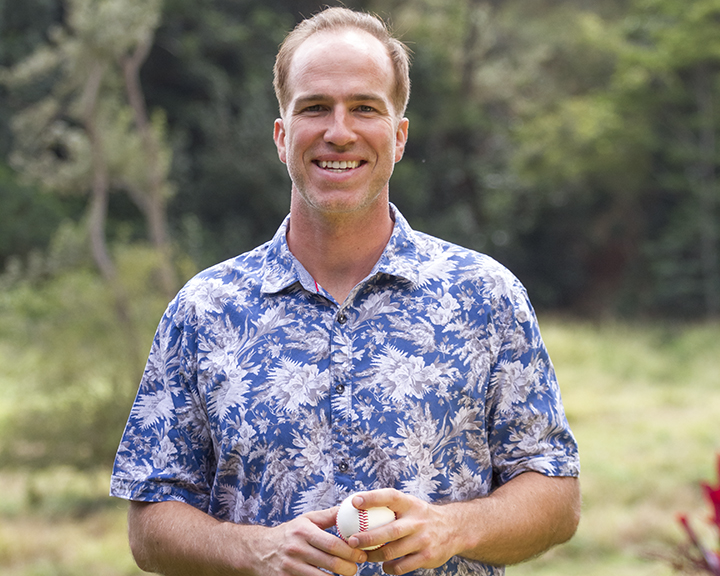 By Uma Sivanathan
By Uma Sivanathan
The subject of maintaining brain health is of personal interest to me because my husband and I are 66 years old and my father had Alzheimer’s Disease. Alzheimer’s is the most common form of dementia, and it often shows up after age 65, but can begin as early as age 45. It is a progressive disease, due to the loss of neuron function in the brain.
What I learned, as I surfed the web for information, is that we need to care for our brain, no matter what age we are, but particularly as we enter our Golden Years. I also learned that Alzheimer and other dementias, for the most part, are preventable.
My first step on this investigative journey was to take a simple quiz that I found at: helpguide.org in their article, “Is It Memory Loss or Dementia?” I learned that Alzheimer’s often begins with mild cognitive impairment (MCI). Symptoms can include: forgetting faces, names, dates and appointments, trouble paying attention, leaving tasks unfinished, misplacing keys, glasses, cell phone, finding the right words to say in a conversation and trouble recalling recently read information.
I found out that the hippocampus part of the brain is the memory area and requires continual new cell growth. With Alzheimer’s and other dementia, this part of the brain becomes damaged and gradually shrinks in size causing memory loss. As Alzheimer’s progresses, tissues in other parts of the brain are damaged and the whole brain shrinks in size, compromising brain function.
I came upon a wealth of information from Dr. Russell Blaylok’s website, w3.blaylockwellness.com. Dr. Blaylock was a neurosurgeon for 26 years and now dedicates his life to preventing chronic illnesses through education. I highly recommend that you check out his website.
After visiting many sites, this is the compiled advice I found on how to achieve optimal brain health:
1- Exercise: At least 30 minutes or more of daily exercise can reduce the risk of mental decline by up to 50 percent. It stimulates the brain’s ability to maintain old connections and make new ones. Walking and swimming are good as well as those exercises that accelerate the heart beat rate. A study published in the Annals of Internal Medicine found that middle-aged adults who are physically fit have better cognitive function at age 65.
2- Socialize with friends and family: Develop new friendships, take classes, volunteer.
3- Choose a brain-healthy diet: Drink plenty of water-the brain is 70 percent water (non-fluoridated filtered water is best); avoid inflammation causing foods, such as sugar, high fructose corn syrup, white flour and white rice; consume brain boosting omega-3 fats such as walnuts, eggs and flax seeds; use healthy oils, such as coconut oil and olive oil; eat lots of organically grown fruits and veggies, particularly those with protective antioxidants and vitamins are broccoli sprouts and all cruciferous veggies; berries, especially blueberries; green leafy veggies; red grapes; drink green tea, white tea and oolong tea to enhance memory and mental alertness. Avoid foods with MSG, hydrolyzed protein, fast foods, fried foods, processed foods, and hydrogenated oils; cook at home often.
4- Supplement with superstar brain nutrients: Number 1 is turmeric. It inhibits plaque build up and destabilizes plaques that have formed. It is thought to prevent and even reverse Alzheimer’s damage; ashwagandha; DHEA; folic acid, vitamins B12, P (OPC), C and D; magnesium; ginkgo biloba; coenzyme Q10; grape seed extract, hyperzine A. Dr. Blaylock offers brain boosting supplements on his website. The Master Cell Protector can be purchased at holistichealthtools.com. Studies have found that a synergy of brain nutrients produce the most benefit.
5- Engage in challenging mental stimulation: Learn to play a musical instrument, learn a foreign language or find a new hobby. The greater the challenge, the greater the benefit. As the saying goes, “If you don’t use it, you lose it.” Memorize things to strengthen memory connections; play brain games such as scrabble, sudoku, crossword puzzles; change routine-take different routes, eat with the other hand, vary habits.
6- Get quality sleep-take naps if needed: Deep, restorative sleep is essential for memory formation and removal of toxins from the brain.
7- Stress management: Stress causes shrinkage of the brain in main memory areas and disrupts nerve cell growth. Do relaxation activities such as yoga, meditation and deep breathing exercises.
8- Other very important advice: have a positive mental attitude, maintain a healthy weight, don’t smoke and minimize alcohol intake.
The next part of the journey was to find out what the causes are of mental decline. From numerous studies, evidence points to various factors. One is the build up of beta-amyloid plaque which causes cell death and tissue loss in the Alzheimer brain. Plaques are abnormal clusters of “sticky” fragments of protein. A study at the Stanford University School of Medicine showed that the damage from beta-amyloid begins by destroying synapses (connections between nerve cells-neurons). When it clumps into plaques, it causes healthy neurons to stop functioning. Then those neurons lose connection with other neurons and die. Many of the above listed brain nutrients protect our brain by preventing beta-amyloid plaque build-up.
It is believed that one of the root causes of mental decline is chronic inflammation of brain cells. Inflammation also worsens already existing conditions. Other researchers believe that oxidative stress by free radicals is a cause of dementias.
On the last leg of my research journey, I found out what oxidative stress is, what free radicals are and how anti-oxidants defend against them. Free radicals are atoms or groups of atoms with odd numbers of electrons and can be formed when oxygen interacts with certain molecules. Once formed, they are highly reactive and can damage cell DNA and cell membranes. They can combine and react chemically with other molecules that they were not meant to combine with. This process is called oxidation.
Free radicals are produced when our bodies are over exposed to ultraviolet rays from the sun; x-rays; gamma rays from radioactive material; cigarette smoke; car exhaust; industrial fumes; pesticides and herbicides, etc. It is estimated that our bodies can get thousands of free radical hits per day, depending on our lifestyle and the environment in which we live.

Uma Sivanathan
Anti-oxidants are molecules that safely interact with free radicals and stop their chain reaction, before damage is done. Our bodies have an anti-oxidant defense system, but we are exposed to so much that produces free radicals, it is recommended that we ramp up our system with a healthy diet, abundant in anti-oxidant rich foods and supplements with essential brain boosters.
Luckily, the evidence is in that we can grow new brain cells and continue to improve the structure and function of our brain, throughout our lifetimes.
We are so blessed to live on beautiful Kaua‘i. May we be stewards of her land and preserve her special, health-giving environment for generations to come.
- Uma Sivanathan is the founder and president of Mana‘olana Center for Health and Healing. She can be reached at manaolanacenter@gmail.com
Discover more from ForKauaiOnline
Subscribe to get the latest posts sent to your email.





Leave a Reply